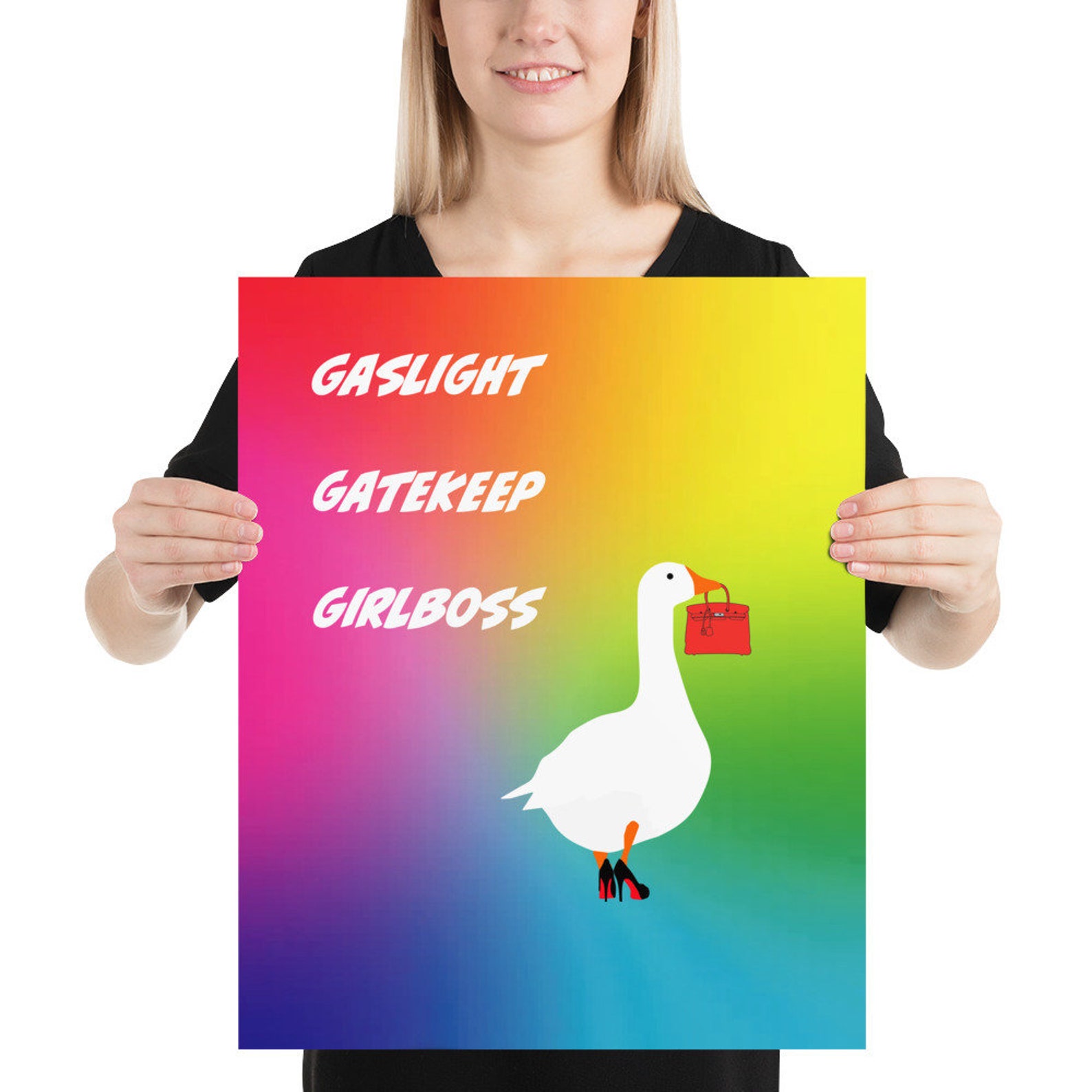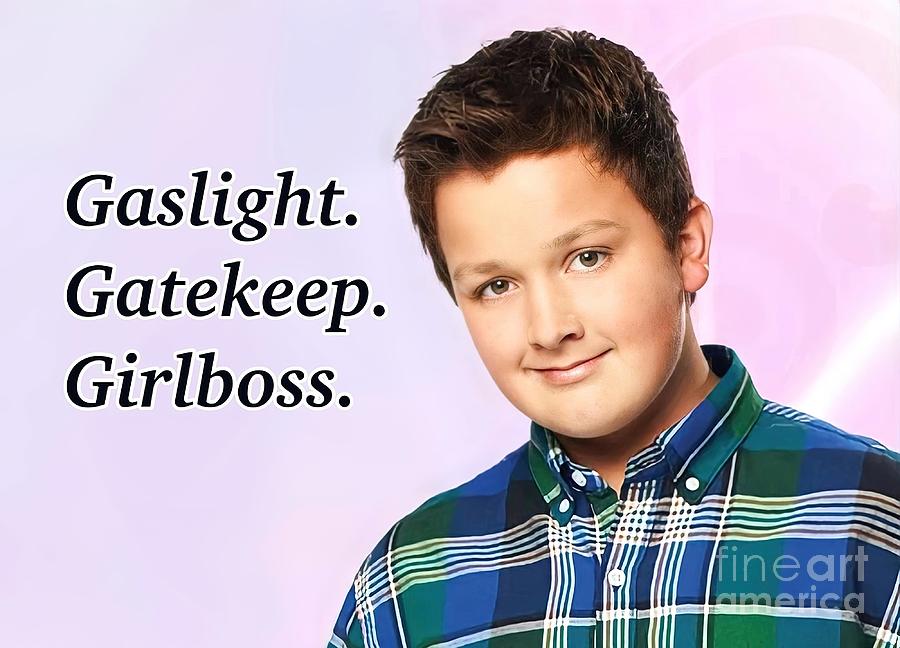

The joke started in the same place as 99% of the internet’s humour – Tumblr – where in January a user posted “today’s agenda: gaslight, gatekeep and, most importantly, girlboss”. In a way, the phrase gaslit, gatekept and girlbossed its way into modern vernacular.If you had to pick one, would you gaslight, gatekeep or girlboss? That’s the question posed by Twitter users right now and it’s quickly become Gen Z’s tongue-in-cheek version of the overused Millennial trope “live, laugh, love”. “Live, laugh, love” became satirical over the years, but “gaslight, gatekeep, girlboss” has always been a joke.

There’s something inspiring about being so villainous in such a modern way. Someone who gaslights, gatekeeps and girlbosses is the perfect target of Gen Z disdain, but that disdain is so pure, it’s almost good.īringing these three words together celebrates the female scammers we’ve grown to have complicated love/hate relationships with, like fictional manipulator Amy Dunne from Gone Girl, Instagram try-hard Caroline Calloway, convicted fraudster Anna Delvey and disgraced tech pioneer Elizabeth Holmes. The three G’s encapsulate what young internet users hate the most, and that’s why we love it The 2010s girlboss movement, still embraced by some Millennials as “ cheugy,” has been teased into oblivion. These days, it’s not necessarily a good thing to be a girlboss, but it’s also a joke. We shouldn’t act like it’s unusual if a woman has power, and turning everything pink and flowery to appeal to women can be “ sexist and demeaning.” Other critics of the word “girlboss” say it’s needlessly gendered “ patronizing” - women who are bosses are just bosses. Hanna’s “creating conflict out of thin air” and beefing “with everyone she’s ever interacted with” gave off an air of “taking back her power,” as a so-called girlboss does in this day and age. TikTok user identified a recent example of being a “girlboss” or “girlbossification” in the reemergence of Gabbie Hanna, a Vine star turned YouTuber who, after months of relative silence, spent several days calling out critics of her 2017 poetry book.

Being a “girlboss” in the early 2010s was considered a good and impressive thing, but now, Gen Z considers it a “cringe” sign of trying too hard to further oneself. Someone who gaslights and gatekeeps generally isn’t a great person, which is why the inclusion of “girlboss” in the phrase is so interesting. In the same way, the term’s popularization makes the behavior easier to call out. Gatekeeping, like gaslighting, is a term that describes a manipulative behavior made popular on the internet. There’s a whole gatekeeping subreddit dedicated to calling out this behavior. If a punk music fan tells you that you can’t wear that shirt if you can’t name five Nirvana songs, that’s gatekeeping. Gatekeeping is, according to Urban Dictionary, “when someone takes it upon themselves to decide who does or does not have access or rights to a community or identity.” It’s used to make the gatekeeper feel superior to others on the outside or more deserving of an identity.įor instance, maybe you’re wearing a Nirvana shirt from Urban Outfitters. “Gaslight, gatekeep, girlboss” doesn’t encourage gaslighting - it pokes fun at people who do, and thus makes it easier to identify and destigmatizes calling it out. She identified this to her audience as gaslighting, and she told In The Know that it helped her audience realize that exact thing had been happening to them, though they didn’t know what to call it.

For instance, in December, TikToker Dana Pizzarelli went viral for calling out her boyfriend who denied doing something she saw happen with her own eyes.


 0 kommentar(er)
0 kommentar(er)
